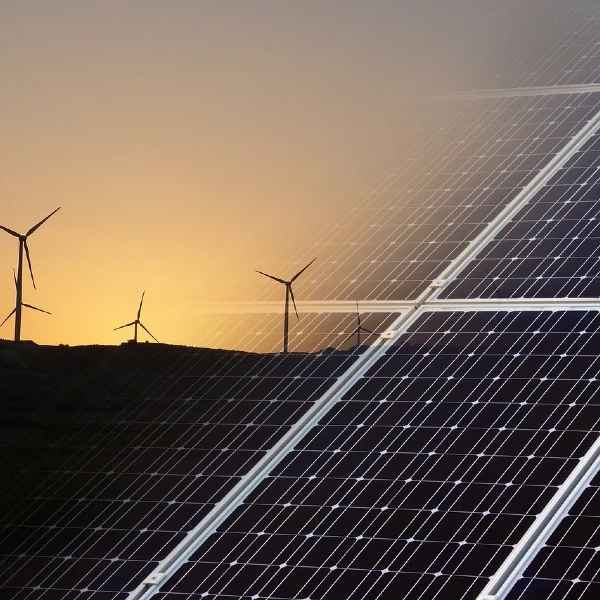Renewable energy has become a buzzword in recent years, and for good reason. In a world facing environmental challenges and climate change, the shift towards renewable energy sources has become imperative. Let’s delve into the world of renewable energy, exploring its types, recent developments, benefits, challenges, and the latest news.
Introduction to Renewable Energy
What is renewable energy?
Renewable energy refers to energy derived from natural resources that are replenished on a human timescale, such as sunlight, wind, rain, tides, waves, and geothermal heat. Unlike fossil fuels, which are finite and contribute to greenhouse gas emissions, renewable energy sources offer a sustainable and clean alternative.
Importance of renewable energy
The importance of renewable energy cannot be overstated. As we face the consequences of climate change and environmental degradation, transitioning to renewable energy is crucial for reducing our carbon footprint, mitigating climate change effects, and ensuring energy security for future generations.
Types of Renewable Energy Sources
Renewable energy encompasses various sources, each with its unique characteristics and potential.
Solar energy
Solar energy, derived from the sun’s radiation, is one of the most abundant renewable energy sources. With advancements in solar technology, such as photovoltaic cells and solar panels, harnessing solar power has become more efficient and cost-effective.
Wind energy
Wind energy, generated by harnessing the kinetic energy of wind through wind turbines, is a rapidly growing renewable energy source. Wind farms across the globe are tapping into the power of wind to produce clean electricity.
Hydroelectric energy
Hydroelectric energy, produced by harnessing the gravitational force of flowing or falling water, has long been a significant source of renewable energy. Large-scale hydroelectric projects, such as dams and reservoirs, contribute significantly to global electricity generation.
Geothermal energy
Geothermal energy, derived from the heat stored beneath the Earth’s surface, offers a reliable and sustainable source of power. Geothermal power plants utilize steam or hot water from underground reservoirs to generate electricity.
Biomass energy
Biomass energy involves converting organic materials, such as wood, crop residues, and waste, into usable energy sources, such as biofuels and biogas. Biomass energy plays a vital role in both electricity generation and heating applications.
Recent Developments in Renewable Energy
The renewable energy sector is witnessing rapid advancements and innovations across various technologies.
Advancements in solar technology
Recent advancements in solar technology, including thin-film solar cells, bifacial panels, and solar tracking systems, have significantly improved the efficiency and affordability of solar power.
Innovations in wind turbines
Innovations in wind turbine design, such as taller towers, larger rotor diameters, and advanced control systems, have increased the efficiency and output of wind energy projects.
Growth of hydroelectric projects
The growth of small-scale hydroelectric projects and run-of-the-river installations has expanded access to clean and reliable hydroelectric power in remote areas.
Geothermal energy breakthroughs
Technological breakthroughs, such as enhanced geothermal systems and geothermal binary cycle power plants, are unlocking the vast potential of geothermal energy resources.
Biomass energy innovations
Innovations in biomass energy production, such as advanced biofuel refining processes and biomass gasification technologies, are making biomass energy more sustainable and cost-effective.
Benefits of Renewable Energy
Renewable energy offers a multitude of benefits, spanning environmental, economic, and social aspects.
Environmental benefits
Renewable energy sources produce minimal greenhouse gas emissions, helping mitigate climate change and reduce air pollution. They also have a lower environmental impact compared to fossil fuels, minimizing habitat destruction and water pollution.
Economic benefits
The renewable energy sector creates jobs, stimulates economic growth, and enhances energy security by diversifying energy sources. Additionally, renewable energy projects often have lower operating costs and provide long-term savings compared to fossil fuel-based power generation.
Social benefits
Renewable energy projects can benefit local communities by providing clean and affordable energy access, improving public health, and promoting sustainable development. They also reduce reliance on imported fossil fuels, enhancing energy independence.
Challenges and Solutions in Renewable Energy
Despite its numerous benefits, renewable energy faces several challenges that need to be addressed for widespread adoption.
Intermittency issues
Intermittent nature of renewable energy sources, such as solar and wind, poses challenges for grid stability and reliability. However, advancements in energy storage technologies, such as batteries and pumped hydro storage, are helping mitigate intermittency issues.
Storage solutions
Effective energy storage solutions are essential for storing excess energy generated by renewable sources and ensuring a stable supply of electricity. Battery storage systems, thermal storage, and hydrogen storage are among the emerging technologies in energy storage.
Infrastructure challenges
Building the necessary infrastructure, such as transmission lines and grid interconnections, to support renewable energy deployment can be challenging and costly. However, strategic planning and investment in grid modernization can overcome these infrastructure challenges.
Policy and regulatory hurdles
Policy and regulatory frameworks play a crucial role in facilitating the transition to renewable energy. Governments need to implement supportive policies, such as renewable energy targets, feed-in tariffs, and carbon pricing mechanisms, to incentivize investment in renewable energy projects.
Global Initiatives and Policies
The global community has undertaken various initiatives and policies to promote renewable energy deployment and combat climate change.
Paris Agreement
The Paris Agreement, adopted in 2015, aims to limit global warming to well below 2 degrees Celsius above pre-industrial levels and pursue efforts to limit the temperature increase to 1.5 degrees Celsius. Renewable energy plays a central role in achieving the goals of the Paris Agreement.
Renewable energy targets
Many countries have set ambitious renewable energy targets to increase the share of renewables in their energy mix and reduce dependence on fossil fuels. These targets drive investment in renewable energy projects and stimulate innovation in clean energy technologies.
Government incentives
Governments around the world offer various incentives and subsidies to promote renewable energy adoption, such as tax credits, grants, and rebates. These incentives make renewable energy more competitive with conventional energy sources and encourage private sector investment.
Renewable Energy News Highlights
Stay updated with the latest news and developments in the renewable energy sector.
Recent breakthroughs
From groundbreaking research to innovative technologies, stay informed about recent breakthroughs shaping the future of renewable energy.
Notable projects
Explore notable renewable energy projects from around the world, from large-scale solar farms to offshore wind installations.
Market trends
Track market trends and investment opportunities in the renewable energy sector, including emerging markets and key players in the industry.
Impact of Renewable Energy on Climate Change
Renewable energy plays a crucial role in mitigating climate change and its associated impacts.
Role in reducing greenhouse gas emissions
By displacing fossil fuel-based power generation, renewable energy helps reduce greenhouse gas emissions, thereby mitigating the effects of climate change, such as global warming, extreme weather events, and sea-level rise.
Mitigation of climate change effects
In addition to reducing emissions, renewable energy contributes to climate change adaptation by enhancing energy resilience, reducing vulnerability to energy disruptions, and promoting sustainable land use practices.
Future Outlook of Renewable Energy
The future of renewable energy looks promising, with continued growth and innovation on the horizon.
Growth projections
Renewable energy is expected to continue its upward trajectory, with projections indicating a significant increase in renewable energy capacity and investment in the coming years.
Technological advancements
Advancements in renewable energy technologies, such as improved efficiency, storage solutions, and grid integration, will drive further deployment and cost reductions.
Market opportunities
Renewable energy presents vast opportunities for investment, innovation, and job creation across the globe. As the world transitions to a low-carbon economy, renewable energy will play a pivotal role in shaping the energy landscape of the future.
Conclusion
Renewable energy offers a sustainable and viable solution to the challenges of climate change, energy security, and economic development. With ongoing advancements and global initiatives, the transition to renewable energy is well underway. By harnessing the power of renewable resources, we can create a cleaner, healthier, and more prosperous future for generations to come.
FAQs
What are the main types of renewable energy?
Solar, wind, hydroelectric, geothermal, and biomass energy are the main types of renewable energy sources.
How does renewable energy benefit the environment?
Renewable energy sources produce minimal greenhouse gas emissions, reduce air pollution, and have a lower environmental impact compared to fossil fuels.
What are the challenges of integrating renewable energy into the grid?
Intermittency, energy storage, infrastructure, and policy barriers are among the main challenges of integrating renewable energy into the grid.
How can individuals contribute to the transition to renewable energy?
Individuals can support renewable energy adoption by investing in renewable energy technologies, reducing energy consumption, and advocating for supportive policies.
What is the role of government in promoting renewable energy?
Governments play a crucial role in promoting renewable energy through policy support, incentives, and investment in renewable energy infrastructure.




